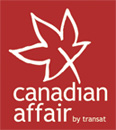The 2026 World Cup is coming to Canada after FIFA members approved their united bid with the United States and Mexico to host the tournament.
The joint bid beat off competition from Morocco with the ‘United 2026’ bid being selected by 134 FIFA member nations compared to 65 for Morocco.
Before you start thinking of booking your holidays in Canada let us take you through everything you need to know about the World Cup and where the tournament will be played in the country.
What you need to know about the 2026 World Cup

The 2026 tournament will be the biggest World Cup ever held as 48 teams will play 80 matches over 34 days for the coveted gold trophy.
It is the first time the tournament will be played across three countries and the first time Canada will host the men’s World Cup.
There will be 16 host cities in total with 10 being in the US and three each in Canada and Mexico. There will be 10 matches played in Canada and 10 in Mexico, while the US will host 60 games, including the final which will be held at the 84,953-capacity MetLife Stadium.
Who are the candidate host cities in Canada?
The bid has revealed that Edmonton, Montreal and Toronto are the candidate host cities from Canada. There are also three candidate cities in Mexico and 17 potential host cities in the US. FIFA will now need to select up to 16 host cities from the 23 candidates proposed in the bid and according to CBS Sports, the footballing world governing body will choose 10 from the 17 potential host cities in the US.
Learn more about the three Canadian cities that could host some of the best players at one of the biggest sporting events in the world. Each city boasts a world-class stadium and plenty more besides…
Montreal

This iconic Canadian city combines the old and new worlds of Quebec and in the summer of 2026, the winding cobbled streets could be filled with football fans from around the world.
Montreal might be known best for its architecture, cuisine and attractions, but it is home to lots of sports teams and will be transformed when the World Cup arrives.
The Montreal Olympic Stadium would host the World Cup matches in the city. In 2026 it will turn 50, which will make it the oldest of the three potential stadiums.
The venue will undergo a $250 million renovation if selected and a new retractable roof, extra seating and new technology inside the stadium will be added. The stadium’s capacity will be 49,905 and the pitch will be converted from its usual AstroTurf to grass.
Toronto

Located in Eastern Canada, Toronto is full of top-class eateries and fascinating museums.
It is also famed for its vibrant sports scene with pro basketball, baseball, hockey, rugby and football (or ‘soccer’, as it’s called in Canada) teams.
The BMO Field is home to Major League Soccer’s Toronto FC and the picturesque stadium is located on the shore of Lake Ontario in the city’s waterfront district, beside Exhibition Place.
Built in 2007, the stadium underwent major renovations in 2015/16 and now the venue has a capacity of 30,000, which will increase to 45,500 by the time the World Cup arrives. The stadium isn’t new to hosting football tournaments as the U-20 Women’s World Cup, the CONCACAF Gold Cup and three MLS finals have been hosted there.
Unlike the Olympic Stadium in Montreal, the BMO Field is a grass pitch, which is a requirement for any FIFA men’s tournament.
Edmonton

Edmonton is the capital of Alberta and much like the rest of the province is known for its beauty with over 22 parks and thousands of kilometres of trails for you to explore.
Football fans that want a bit of retail therapy before or after a game can head to the West Edmonton Mall as it has over 800 shops as well as a theme park, water park, ice rink, aquarium and even a golf course.
The Commonwealth Stadium is the biggest of all three of the potential stadiums with the capacity set to be over 56,000 for the FIFA World Cup.
The stadium was built in 1978 and it regularly plays host to the Edmonton Eskimos of the Canadian Football League. The pitch was also one of the venues for the 2015 FIFA Women’s World Cup.
Image Credit: IQRemix (Flickr)







